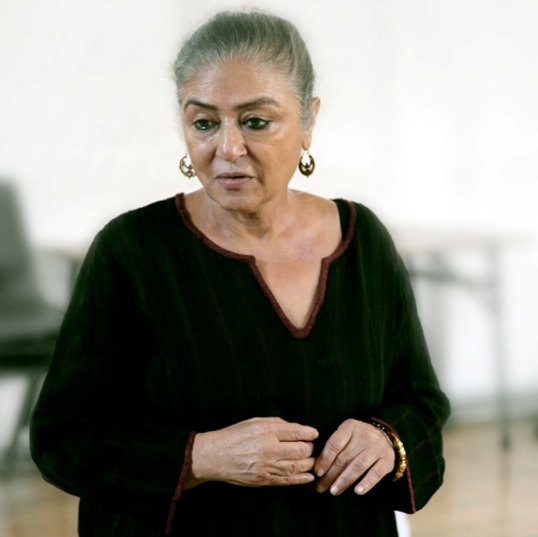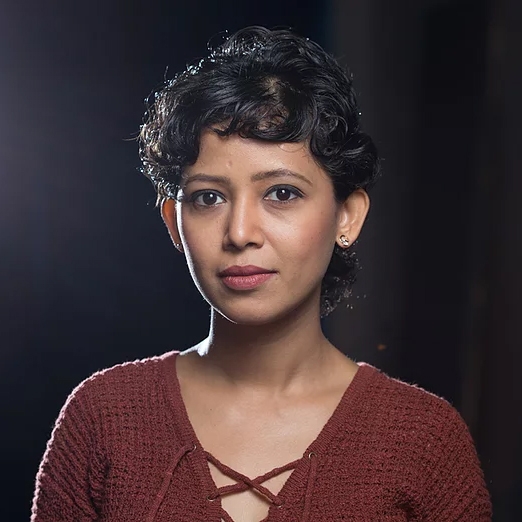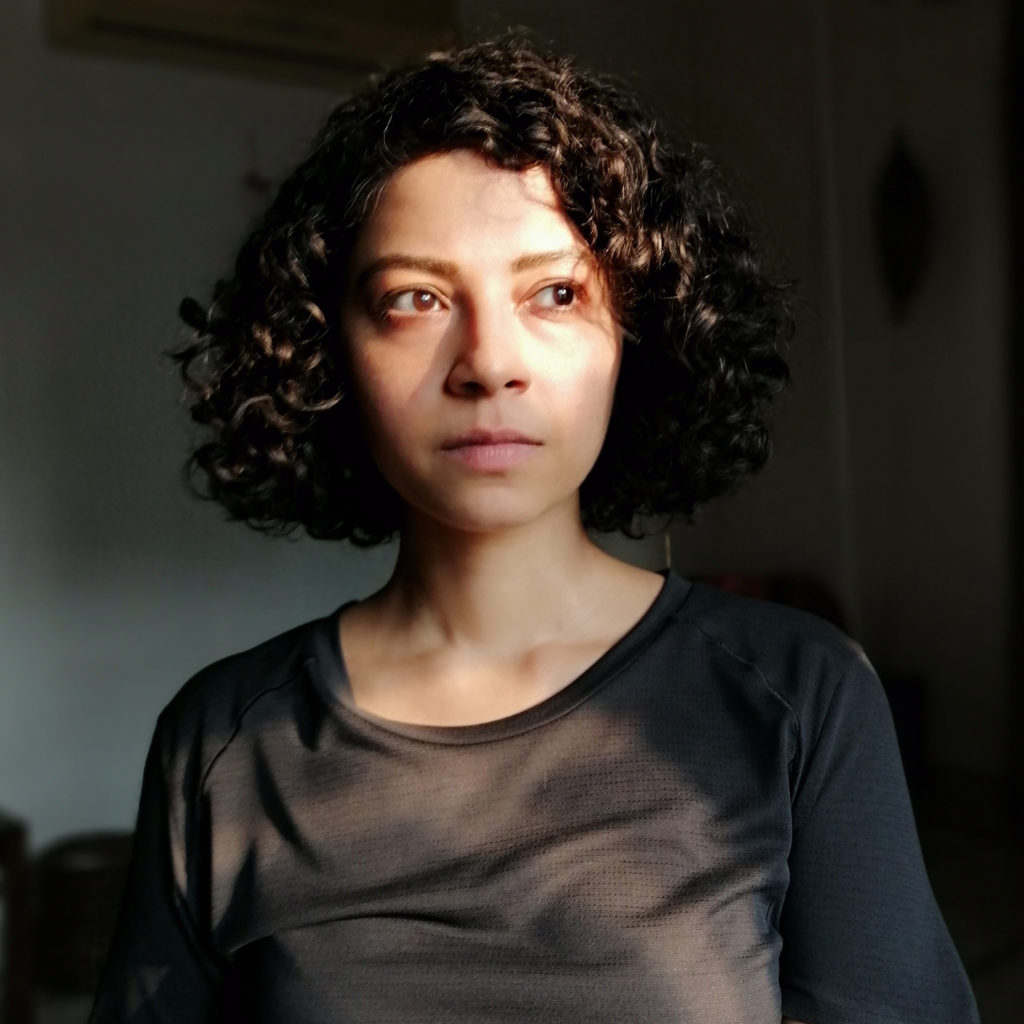a place for performance: session.3
conversations.3:session.3:trailer
conversations.3:session.3:part.1of2
conversations.3:session.3:part.2of2
panel
Dr. Neelam Mansingh Chowdhry
director
The COMPANY, Chandigarh

Neelam Man Singh Chowdhry has a Master’s degree in the History of Arts as well as a diploma from the National School of Drama. In 1979, she moved to Bhopal and was attached to The Rang Mandal, a theatre repertory attached to the Multi-arts Complex, Bharat Bhavan. In 1984, she moved to Chandigarh where she set up her own theatre company called ‘The Company.’ Parallely, she has also been teaching in the Department of Indian Theatre, Panjab University and was also the Chairperson.
Dr. Chowdhry’s well-known plays include Kitchen Katha, The Suit, Yerma, Nagamandala, The Madwoman of Chaillot, Little Eyolf, Bitter Fruit and Naked Voices, Gumm Hai, and Black Box, to name a few . The group has participated in major national and international festivals.
Dr. Chowdhry is the recipient of several awards including the Sangeet Natak Akademi Award in 2003, and the Padma Shri in 2011. She is presently Professor Emeritus at Panjab University.
Bitter Fruit
Naked Voices
Black Box
Amruta Mapuskar
Actor, theatre maker, clown, and performance artist
Madman & Me, Mumbai

Amruta is a freelance artist, teacher and performer, currently based in Mumbai. She graduated from Mumbai University with an MA in Theatre Arts, and has since trained and practiced within various performance disciplines from around the world. She is also a graduate of The DUENDE School of Ensemble Physical Theatre.
Born in Ratnagiri, a small town in the belt of Konkan Region of Maharashtra, India, Amruta began her theatre studies at home with her father, who was involved in folk and regional theatre. Since then, she has never doubted what she wants to do with her life.
Amruta’s focus lies in exploring the integration of Body and Mind, on creating body-mind awareness and mindfulness through interdisciplinary practices, including Tai-Chi, Kalari, Clowning, Dance. From such foundations, she finds the freedom to (create) work that respects the complexity of expressions in the body, and how to shape expression into performance.
As an interdisciplinary teacher/facilitator, Amruta aims to create strong physical awareness and presence, not only with actors but also youngsters. Her work explores existing social/cultural paradigms and discourses concerning relationships between body and mind, seeking to bridge the gap between body and mind created by dominant structures in society. Her clown work, by spreading laughter, aims to improve mental health of underpreviliged kids, including children of sex workers or those in juvenile home and for women rescued from trafficking.
In 2019 Amruta was the first (and only one yet) to be awarded the Julie Goell Eccentric Woman Scholarship. She was recently awarded Maharashtra Cultural Center’s RANGSETU fellowship for her work in Clowning.
Amba Suhasini
performer/director
artistic co-director, GUILD OF THE GOAT, New Delhi

Amba is an alumnus of LAMDA (The London Academy of Music and Dramatic Art, London UK). She is a theatre maker, performer, teacher, workshop facilitator and director.
She hopes to create theatre that challenges and investigates our times. ‘What is the world and what is our place within it?’, is the question she aims to continue to explore, with and through her work.
Amba continues her overseas collaborations in the UK and US. Her recent work during the pandemic in 2020 includes a virtual theatre experiment – What you will – a devised show in collaboration with The Shakespeare Ensemble, UK. And more recently in 2021, Interwebs, a project built in collaboration with Walkabout Theatre, Chicago with whom she has been working regularly in the US over the last 4 years.
For close to a decade now Amba has been conducting workshops for both adults and children and has also been a regular visiting faculty at DSM, Mumbai, where she taught Shakespeare in Performance.
Amba founded the Guild of the Goat in 2017 with RUDY to create work that is exciting, relevant, contemporary and makes us all question ourselves and the world we inhabit. The company chooses not to have a unifying artistic vision or trademark aesthetic. The guild of practitioners with diverse training, experiences and approaches, the company finds strength in its diversity and aspires to create work and build audiences which are also diverse.
Note on Conversations.3 initiative
What is it to be told, without being spoken with or to, that one’s primary calling isn’t an essential service to society? What is it for the sociable to be denied the opportunity to congregate? What is it for the embodied creative to not have the opportunity to create? Whether self-imposed or state-enforced, over the past year we have dealt with isolation of different kinds in different ways. I consider it invaluable to engage with performance practitioners to ask and know how they’ve been over the past year. Therefore, this conversation series with practitioners and entrepreneurs whom I’ve been in touch with or moved by.
This program is my attempt at furthering conversations on the questions and perspectives presented by Kolkata based dramaturge, Dr. Rustom Bharucha in his 9-episode speech act tilted, Theater and the CoronaVirus, published in January (’21). Here’s the link to Dr. Bharucha’s work which offers a comprehensive historical perspective on the pandemic, performing arts and communities:
Each session has a panel of three participants, comprised of a young practitioner, a veteran and an entrepreneur (who owns/ manages a place of performance). The conversations, initiated and interspersed with Qs and largely propelled by the participants, would last two hours each. The Qs are generic based on the participants’ performance/ performative/ spatial/ theoretical/ creative engagements. Questions (such as, How have you engaged in your art over the past year? Are there shifts in your perspective with respect to your art? What are your ideas about the space for practise and performance considering what the world has been through in the last one year?) are intended as catalysts to the conversations with and between the participants.
The recordings of the five conversations will be edited and posted on this website – one episode every Saturday through the month of August.
I don’t consider it important for us to positively conclude conversations. Instead, it is perhaps far more important to simply congregate in whatever form possible and become responsive to the fireworks of ideas and insights lit up by the conversations.
Sidharth
June-July 2021

 malkum
malkum